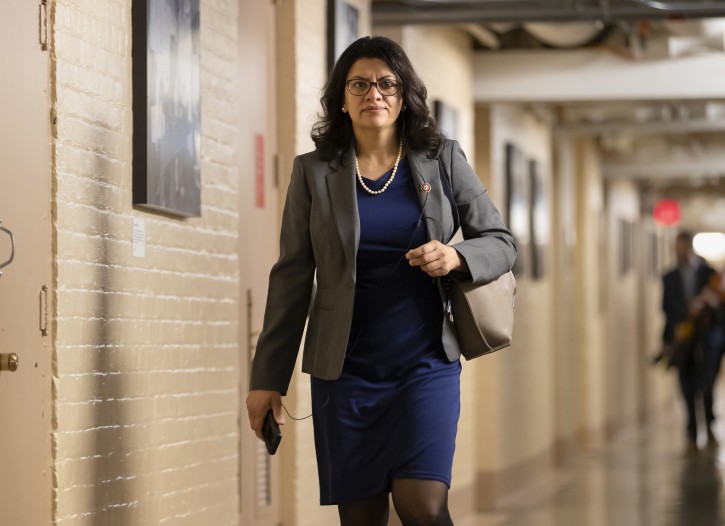
Washington – Freshman Rep. Rashida Tlaib, D-Mich., said in an interview that she “loves the fact” that her “Palestinian ancestors” were part an attempt “to create a safe haven for Jews” after the Holocaust.
She made the comments in an interview on Saturday on the Skullduggery podcast titled “From Rashida With Love.”
“There’s always kind of a calming feeling when I think of the tragedy of the Holocaust, that it was my ancestors — Palestinians — who lost their land and some lost their lives, their livelihood, their human dignity, their existence, in many ways, has been wiped out … in the name of trying to create a safe haven for Jews, post-Holocaust, post-tragedy and the horrific persecution of Jews across the world at that time. And I love the fact that it was my ancestors that provided that in many ways,” said Tlaib.
Her characterization of what occurred in pre-state Palestine appears to be inconsistent with historical fact, however.
Muhammad Amin al-Husayni, the Grand Mufti of Jerusalem, opposed all immigration of Jews into Palestine, and during the war he campaigned against the transfer of Jewish refugees to Palestine. He reportedly worked with the Nazis to prevent the establishment of a Jewish homeland.
In addition, the Palestinian Arab residents revolted against the British which led to restrictions on Jewish immigration to British Mandate Palestine, depriving Jews of a “safe haven.”
Tlaib also condemned Prime Minister Benjamin Netanyahu for not seeing her grandmother who lives in the West Bank as an equal.
“We can smell it from far away that, no, you don’t want to look at my grandmother in the eye, Netanyahu, and say ‘You are equal to me. You are as human as I am to you,’” she said.
Last week Tlaib, the first Palestinian-American to be elected to Congress, announced the dates for her congressional visit to the West Bank, which she organized to compete with Israel trips organized by the American Israel Education Foundation, an affiliate of the American Israel Public Affairs Committee.
As reported by Vos Iz Neias
